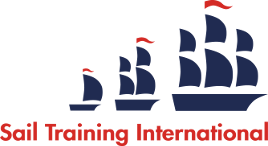The aim of sail training is the same, no matter which voyage you take. However, each vessel is different, so there are a few things you need to think about.
When we say we believe that sailing is an activity for everyone, we mean it, and having a disability shouldn’t restrict anyone from taking part. Even wheelchair users can climb the rigging. Each vessel that welcomes people with disabilities will make this clear. So, don’t let anything stop you finding out just how much you really can achieve. Below are just a things to consider when picking your adventure.





